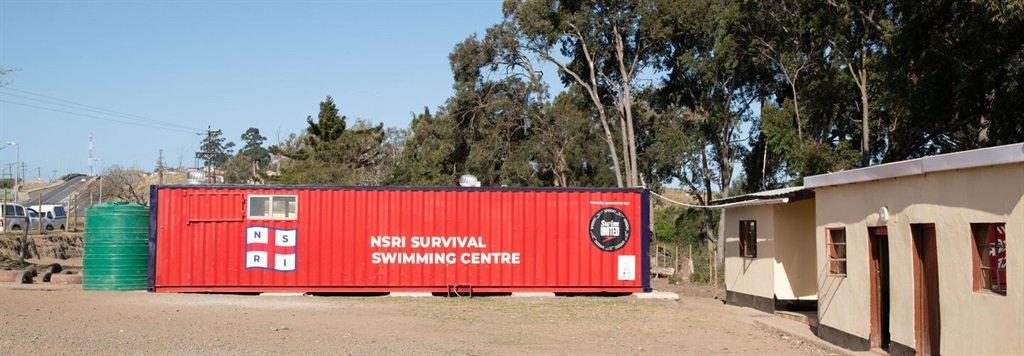Africa-Press – South-Africa. In a rural Eastern Cape village, 20 minutes outside Port St Johns, every time a child goes to the river to swim, there is a chance they may not come home.
But this will now change, due to a lifesaving intervention by the National Sea Rescue Institute (NSRI).
The NSRI has made a 6m-long swimming pool available to villagers in Tombo Village, as part of a survival swimming centre that will teach the community water safety.
The new centre is at an independent school in Tombo, the Noah Christian Academy.
The village was chosen based on NSRI statistics, which shows that the area has the highest occurrences of drownings in the Eastern Cape.
Andrew Ingram, drowning prevention manager at the NSRI, said the Eastern Cape had the second highest number of drownings in the country, after KwaZulu-Natal.
“Swimming is a life skill and learning to swim at an early age will reduce drowning incidences, especially among children. In many underprivileged communities in South Africa, this would never become a reality,” he said.
The NSRI estimated that around 1 500 people drown each year in South Africa. More than a quarter of those deaths are among children.
Sanelisiwe Madukwana, 33, a teacher at Noah Christian Academy, has experienced one of these losses firsthand.
She said:
Madukwana was one of the first to take on swimming lessons. She has already learnt to look underwater to be able to swim to safety.
“I have learnt about floating and kicking. I didn’t have much knowledge about floating and I didn’t know that if you are in the water you can actually float. I just thought if you are in the water and can’t swim you will drown. At least now I know I just have to relax, stretch my legs and hands out and just float,” she said.
Madukwana said she wanted to learn to swim so that she could help others.
The centre is built in a 12m shipping container which features a 6m-long swimming pool, an office space for the instructor and a change room for the students.
The pool is a metre deep, allowing small children to stand in it. As it is in a shipping container, the pool can be locked when not in use to ensure there is no danger of anyone entering when it’s unsupervised.
The swimming lessons are offered at no cost to the community, with a focus on teaching children in and around the village.
Nwabisa Vera Nkata, principal at Noah Christian Academy said: “Considering that swimming lessons are only afforded by wealthy families, having this centre will be so special for our kids and the community at large.
“We stay in a village that is close to the Umzimvubu river and the coast, where young and old people drown, so equipping our learners with swimming lessons will be a huge advantage.”
The lessons include how to hold your breath underwater, open your eyes while underwater, float and safely propel yourself for at least 5m in water.
Malwande Silwana, 32, a resident of the village, also had her first swimming lesson. She hoped the new skills would help her to keep her children safe.
“The swimming pool will change our lives. We will be getting lessons so that we can rescue our children if they find themselves drowning in the river. We have rivers here where children drown and they aren’t able to help themselves, but with the lessons, they will at least be able to save themselves,” she said.
Silwana said the community had “often” lost members to drowning.
“Children drown in the river. When it is warm the children like to go swimming in the river and they don’t come back. We find out that they have drowned in the water. We see that they were not able to come out of the river and that there was no one around to even help them because many people don’t know how to swim,” she said.
Tombo Village faced challenges found in many rural communities, said Ingram.
“People sustain themselves from the ocean and they live near to large rivers that they have to cross every day to go to school or work. Women also need to use the rivers for washing,” he explained.
And with limited swimming skills, each of these activities brings with them the danger of drowning.
“In one case in the community, a child had drowned and the body was only found three days later. It’s extremely common for people to drown and the bodies are never found,” he said.
For More News And Analysis About South-Africa Follow Africa-Press






